Elephantine Island: Unforgettable Adventure Awaits
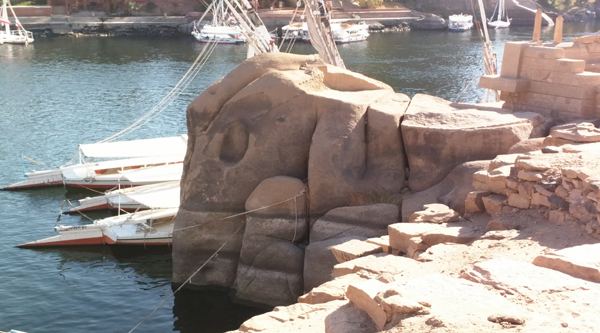
Introduction to Elephantine Island
Overview of Elephantine Island history and significance
Elephantine Island is an ancient site situated in the Nile River in Egypt, inhabited since at least the Old Kingdom period, around 3100-2180 BC, and has been a strategic location for trade and defence over the centuries.
The island is famous for its archaeological remains, including the remains of the Temple of Khnum, dedicated to the ram-headed god Khnum. You will find that Elephantine Island holds great significance in understanding the religious practices and daily life of ancient Egyptians.
Geographical location and attractions on Elephantine Island
You will discover that Elephantine Island is located near Aswan in southern Egypt and is easily accessible by boat. The island is surrounded by the Nile River, offering stunning views of the water and nearby desert landscapes.
As you explore the island, you will encounter various attractions, such as the Nubian Village, where you can experience the unique Nubian culture and traditions. You will also find the Aswan Museum, which houses a collection of artefacts excavated from Elephantine Island and the surrounding area. You can take a leisurely stroll along the island's paths, taking in the ancient ruins and enjoying the peaceful atmosphere that permeates the island.

Ancient History of Elephantine Island
Located near Aswan in southern Egypt, Elephantine Island offers a blend of ancient Egyptian and Nubian influences. Visitors can explore the Nubian Village on the island, immersing themselves in the unique Nubian culture and traditions.
The Aswan Museum houses a diverse collection of artefacts excavated from Elephantine Island and its surrounding areas, showcasing the region's cultural richness. Strolling along the island's paths, visitors can admire the ancient ruins and soak in the peaceful ambience of Elephantine Island.
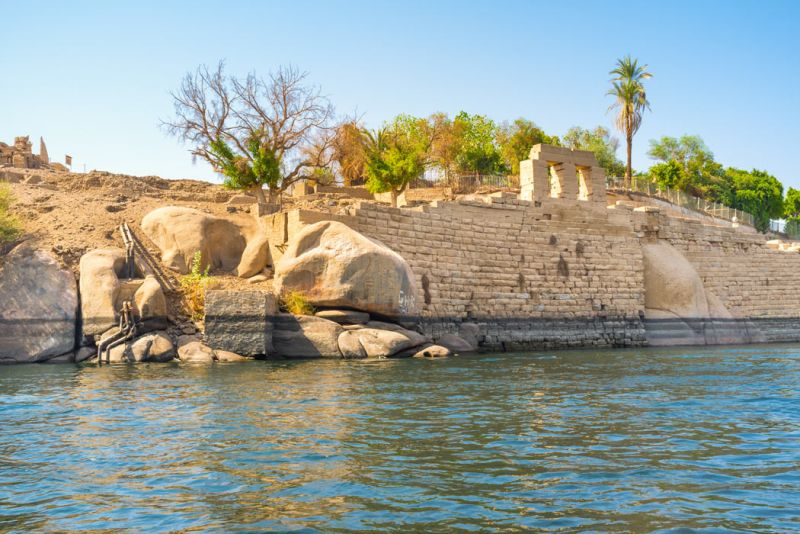
Aswan Museum and Nilometer
Exhibits showcasing the history of Elephantine Island
Located near the serene Nile River, the Aswan Museum offers a captivating display of artefacts that provide a glimpse into the ancient history of Elephantine Island.
Visitors can marvel at relics ranging from intricate pottery to ceremonial artefacts, each offering clues to the island's past inhabitants and their way of life. The museum's carefully curated exhibits serve as a window to the rich cultural tapestry that has woven Elephantine Island into the historical narrative of Egypt.
Importance of the Nilometer for measuring Nile River inundation
The Nilometer, an ancient device utilized to measure the water levels of the Nile River, holds significant historical relevance for the agricultural practices of ancient Egypt. Located on Elephantine Island, this ingenious tool was crucial for predicting the river's inundation patterns, thereby aiding farmers in determining optimal crop planting times.
The Nilometer's precision in gauging the Nile's fluctuations played a pivotal role in ensuring the success of agricultural harvests, highlighting the island's enduring connection to the ebb and flow of the life-giving river.
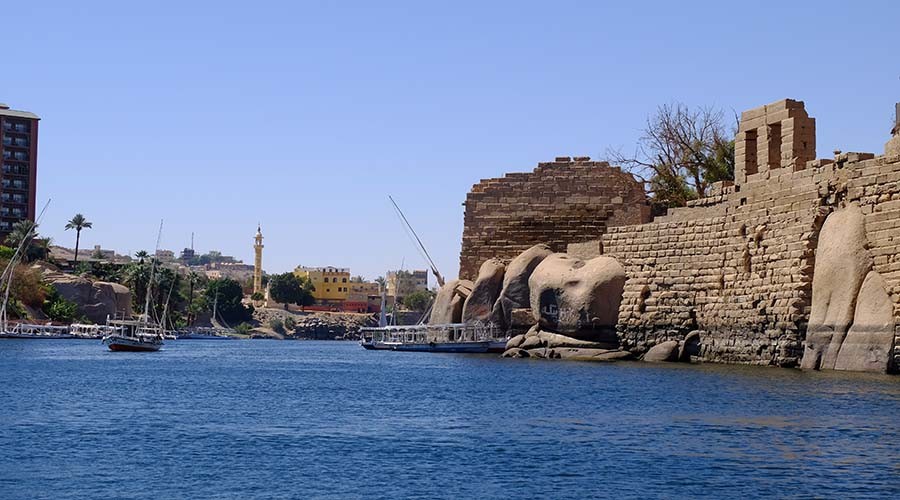
Elephantine Island Today
Modern-day communities and activities on Elephantine Island
On Elephantine Island today, modern communities coexist with the remnants of ancient civilizations, creating a unique blend of past and present. The island is home to a vibrant community that maintains traditional lifestyles while embracing modern developments. Residents engage in activities such as farming, fishing, and handicraft production, keeping alive the cultural heritage passed down through generations.
The island's bustling markets and cafes offer visitors a glimpse into daily life on Elephantine Island, where ancient history seamlessly integrates with contemporary living.
Tourism and preservation efforts on the island
Tourism plays a significant role in preserving and promoting Elephantine Island's rich heritage. Visitors worldwide are drawn to the island's archaeological sites, including the Aswan Museum and Nilometer, which showcase its historical significance.
Preservation efforts are ongoing to ensure that the island's cultural treasures are protected for future generations. Archaeologists work tirelessly to uncover new discoveries, while conservators employ advanced techniques to safeguard existing artefacts. Through sustainable tourism practices and community involvement, Elephantine Island continues to serve as a testament to Egypt's enduring legacy.
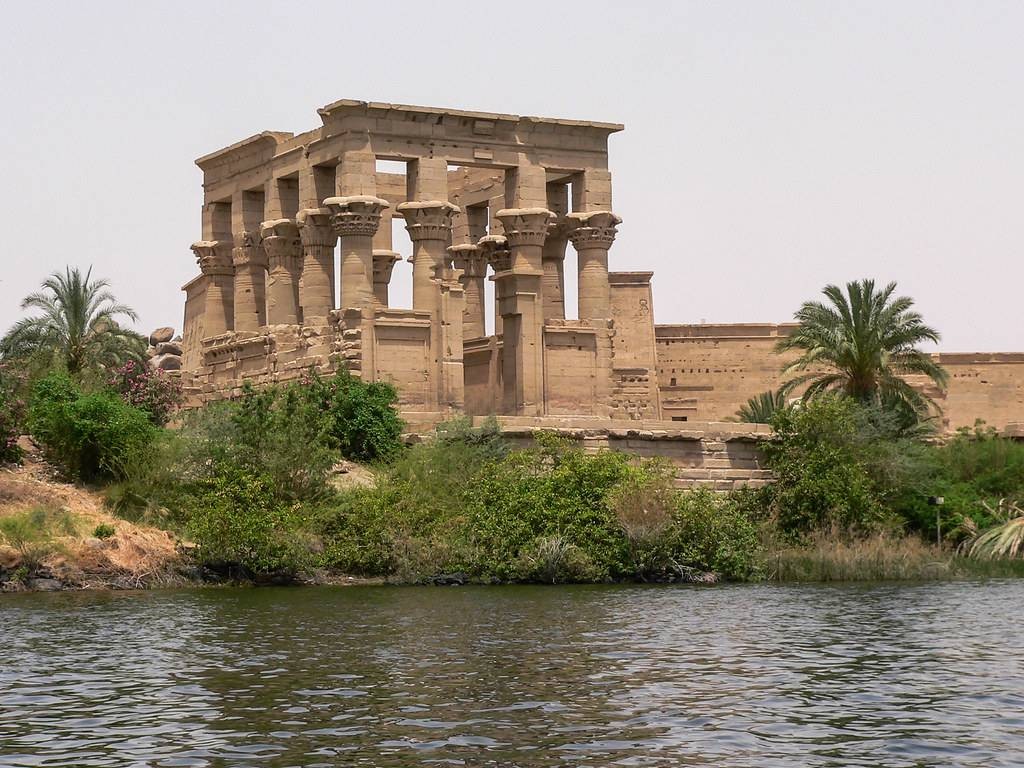
The Temple of Khnum
History and significance of the Temple of Khnum on Elephantine Island
At the Temple of Khnum on Elephantine Island, the ancient Egyptians worshipped the ram-headed god Khnum, believed to be the creator of human beings from clay. The temple was a centre of religious activity and cultural importance in ancient Egypt. It held a prominent place in the lives of the island's inhabitants, who sought Khnum's blessings for fertility and protection.
The temple's historical significance lies in its connection to the mythology and beliefs of the ancient Egyptians, offering insights into their religious practices and worldviews.
Architectural features and religious practices at the temple
The Temple of Khnum features impressive architectural elements that reflect ancient Egyptian builders' artistic and technical prowess. The temple complex includes a main sanctuary, chapels, courtyards, and the sacred lake, symbolizing the ancient Egyptian beliefs in creation and rebirth. Priests conducted religious ceremonies and rituals to honour Khnum and seek his benevolence. Devotees offered prayers, incense, and sacrifices as part of their religious practices, demonstrating their devotion to the deity. The temple's design and layout facilitated the performance of these rituals, underscoring the importance of religious worship in ancient Egyptian society.
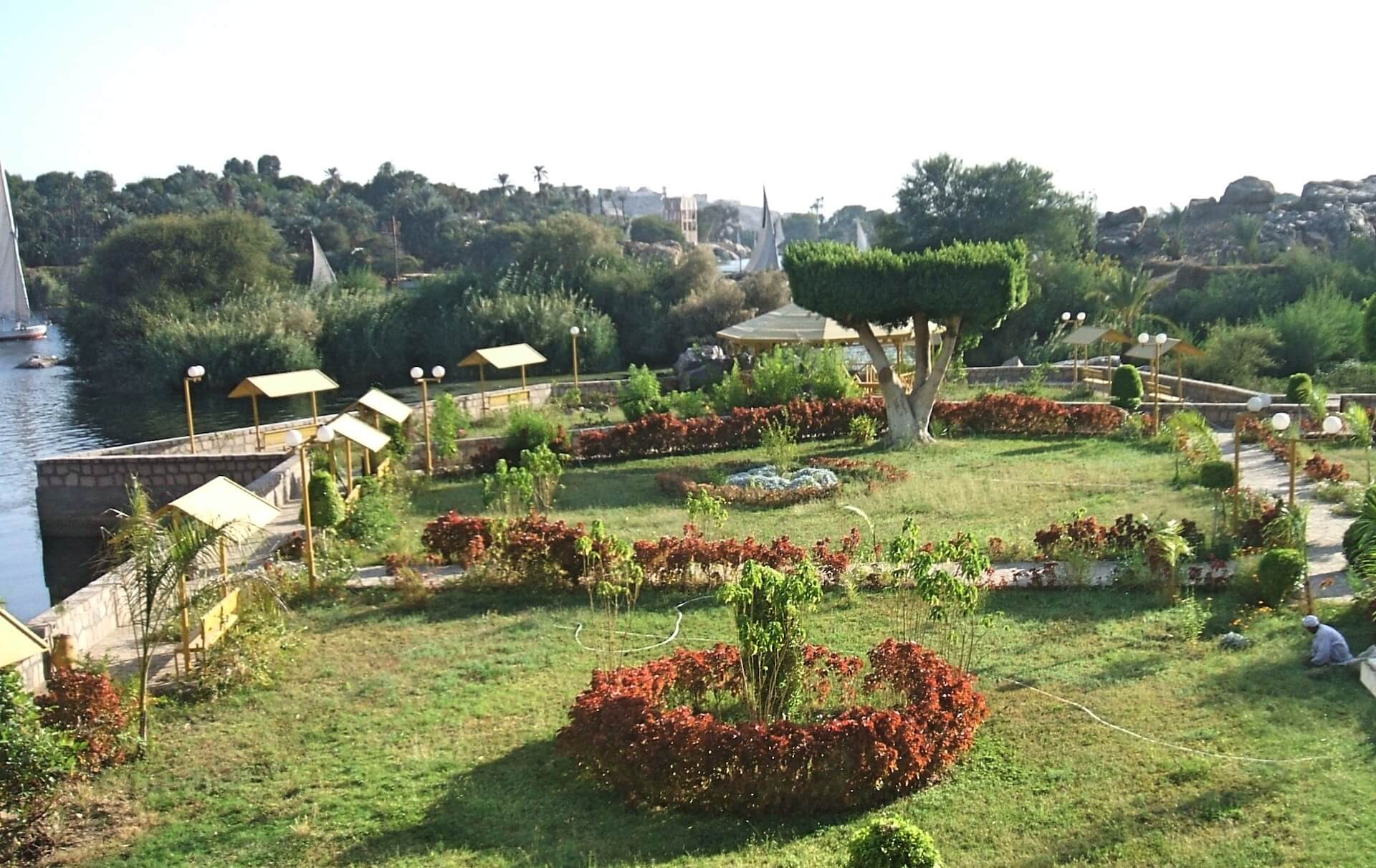
Aswan Botanical Garden
Overview of the Aswan Botanical Garden on Elephantine Island
Visiting the Aswan Botanical Garden on Elephantine Island offers a peaceful retreat amidst lush greenery on the banks of the Nile. The garden provides a tranquil setting for nature enthusiasts to explore diverse plant species in a carefully curated botanical environment. Its location on the island allows visitors to escape the hustle and bustle of city life and immerse themselves in the beauty of the natural world.
Plant species and botanical attractions in the garden
The Aswan Botanical Garden is home to a rich variety of plant species, including exotic flowers, towering trees, and aromatic herbs. Visitors can marvel at the vibrant colours of blooming flowers, learn about unique plant adaptations, and enjoy the serene atmosphere of the garden. Highlights of the garden include rare palm trees, medicinal plants, and indigenous flora that showcase the diverse botanical heritage of the region.
Strolling through the garden pathways reveals a tapestry of colours and scents, offering a sensory experience that rejuvenates the mind and spirit. Whether seeking moments of contemplation or simply appreciating nature's beauty, the Aswan Botanical Garden provides a tranquil oasis for all who visit.

Nubian Village Visit
Experience the Nubian culture and traditions on Elephantine Island
When you visit the Nubian Village on Elephantine Island, you enter a world where ancient traditions and vibrant culture converge. The Nubian people warmly welcome visitors to experience their way of life, from unique architectural styles to colourful clothing adorned with intricate patterns. You have the opportunity to engage with locals, learn about their heritage, and witness traditional ceremonies that have been passed down through generations.
Artisan crafts and local cuisine in the Nubian village
Exploring the Nubian Village exposes you to an array of artisan crafts that reflect the community's artistic talents and skills. From intricately woven textiles to handcrafted pottery, each piece showcases the Nubian people's dedication to preserving their cultural identity.
Additionally, you can savour the flavours of Nubian cuisine, characterized by aromatic spices, fresh ingredients, and unique cooking techniques. Indulge in traditional dishes such as Ful medames, Karkadeh tea, and date desserts that provide a glimpse into the culinary heritage of the Nubian culture.

Wildlife and Conservation
Wildlife species found on Elephantine Island
When you explore Elephantine Island, you will encounter a diverse array of wildlife species that call this unique ecosystem home. From the majestic Nile crocodile to the graceful river dolphins, each animal contributes to the rich biodiversity of the island.
Birdwatching enthusiasts will be delighted by the sight of colourful migratory birds and endemic species fluttering through the skies. Keep your eyes peeled for the Nubian ibex, a symbol of strength and resilience in the local culture, as it navigates the rugged terrain with ease.
Conservation efforts to protect the island's natural environment
Efforts are underway to safeguard the natural environment of Elephantine Island and preserve its delicate ecosystems. Local conservation groups work tirelessly to combat threats such as habitat destruction, pollution, and overfishing that endanger the island's wildlife.
By promoting sustainable tourism practices and implementing waste management initiatives, these organizations aim to ensure that future generations can continue to appreciate the beauty and biodiversity of this pristine habitat. Joining conservation activities and supporting eco-friendly initiatives are crucial steps towards safeguarding the natural heritage of Elephantine Island for years to come.

Conclusion and Travel Tips
Travel tips for visiting Elephantine Island and making the most of your trip
When you explore Elephantine Island, take note of the diverse wildlife species that call this place home, from the Nile crocodile to the river dolphins. Birdwatching enthusiasts can enjoy spotting migratory birds and unique species flying overhead. Keep an eye out for the Nubian ibex gracefully manoeuvring through the rugged terrain, symbolizing strength in local culture.
Efforts are ongoing to protect the island's natural environment from threats like habitat destruction and pollution. Support local conservation groups working diligently to preserve the delicate ecosystems on Elephantine Island. By adopting sustainable tourism practices and participating in waste management programs, you can contribute to the preservation of this pristine habitat. Join conservation activities to ensure the beauty and biodiversity of the island endure for future generations.
